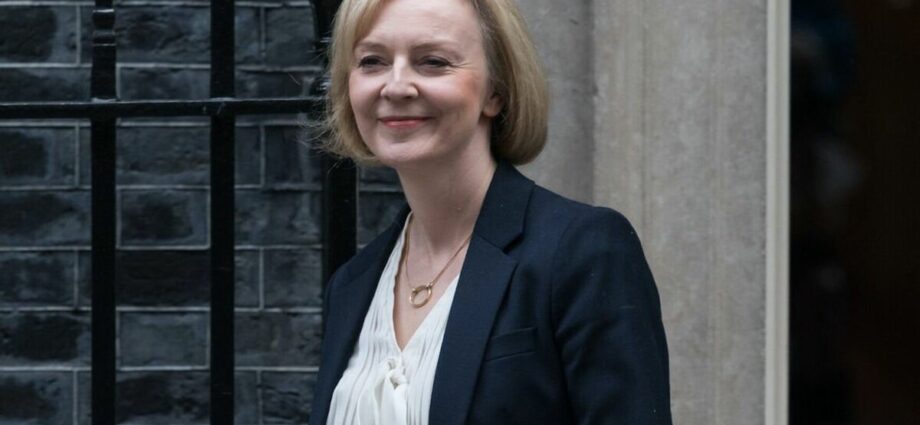Liz Truss' power is 'ebbing away' says Caroline Slocock
We use your sign-up to provide content in ways you’ve consented to and to improve our understanding of you. This may include adverts from us and 3rd parties based on our understanding. You can unsubscribe at any time. More info
Conservative party members have met today to discuss a potential replacement “unity” candidate for Liz Truss. Wednesday saw protracted chaos under the new Prime Minister as her Government struggled to clarify the rules around a Labour-backed fracking motion. With scuffles reported in the House of Commons voting chamber and additional U-turns following Suella Braverman’s abrupt resignation, the Tory party is in grave danger as calls mount for a general election.

Who can call a general election?
MPs, celebrities and the general public have all mounted calls for a general election in the past week.
A consensus is mounting that the Government is in a “death spiral”, and that the voting public, not the Tory party, should decide who follows Ms Truss into Number 10.
There are several avenues to a general election, the quickest of which is via the Prime Minister herself.
Liz Truss
Boris Johnson’s Government has broadened the powers afforded to the Prime Minister when it comes to a general election.
The ex-PM repealed the Fixed-Term Parliament Act (FTPA) in March, which limited the occasions the UK could hold a general election outside earmarked voting years.
The FTPA only allowed off-timetable national ballots if two-thirds of the House of Commons voted for one, or the Government lost a vote of no confidence and MPs couldn’t settle on a replacement in the following 14 days.
The Prime Minister can dissolve Parliament now call a general election “at a time of their choosing”.
But whether or not they have this right depends on the British sovereign.
King Charles III
If Ms Truss wishes to hold a general election, she must first meet with King Charles III.
Only he can grant her request to dissolve Parliament before its latest term ends in December 2024.
The King cannot act without the Prime Minister’s request, meaning he is unable to call an election on his own.
While there is some debate around the subject, the sovereign likely can’t fire the Prime Minister either.
The last time this happened was in 1834, when King William IV dismissed Whig Prime Minister Lord Melbourne.
Labour
As the official opposition, Labour is a vital force in the UK’s Parliamentary democracy.
The party, therefore, has the ability to initiate proceedings that could lead to a general election.
But it can only act within Parliament’s rules by calling a confidence vote.
These may take the form of explicitly worded no-confidence motions, a vote the Government has clarified is a “matter of confidence” or implicit votes on vital documents like the Queen’s Speech or Chancellor’s budget.
Losing any of these would usually require the Prime Minister to resign or request a dissolution from the King, thus triggering a general election.
Can the public force a general election?
While the public is solely responsible for deciding the outcome of a general election, regular Britons cannot force one to take place.
The electorate has little power when it comes to deciding official business, but those who want an election can express their wish.
People can either write to their MP and encourage them to take action, or create a petition.
The House of Commons allows regular Britons to communicate with officials at the Cabinet Office via its petition.parliament.uk system.
Petitions with 10,000 signatures receive an official response, while 100,000 results in consideration for a Parliamentary debate.
A 2016 petition called for Parliament to consider allowing the public to call a general election.
But it closed with 14,178 signatures, receiving a Government response restating rules laid out by the FTPA.
When is the next general election?
If all else fails, people will have to sit back and wait for the next scheduled general election.
Mr Johnson’s Government received a five-year mandate in 2019 that started when Parliament sat for the first time on December 17.
The mandate runs out on the same day in 2024, and the incumbent Government must call a new one within the next 25 days.
That schedule would see the next countrywide ballot some time in January 2025.
But there are other routes that could force the Prime Minister or her Party to declare one early.
Conservative votes of no confidence
Conservatives, like other Parliamentary parties, have a system that allows them to officially express discontent with a leader.
The leading 1922 Committee may receive letters of no confidence from members, and if these breach a certain threshold, they result in a vote of no confidence.
The current threshold is 15 percent, roughly 53 of the 357 Tory MPs, and Ms Truss would need support from more than 50 percent – around 178 – to stay on, otherwise the party elects a new leader.
New Prime Ministers are immune from leadership challenges for a full year after their election, but the 1922 Committee can change the rules with a vote.
Leadership races are not general elections, but, changing leaders twice in a year makes one more likely.
Source: Read Full Article
-
Rishi Sunak’s central election promise is in jeopardy, warns top economist
-
House Votes To Formalize The Biden Inquiry; Biden Calls It 'Baseless Political Stunt'
-
Should a snap election be called? – YOU VOTED
-
Kuenssberg dragged into BBC bias row after ‘crossing the line’ over Braverman
-
Sturgeon breaks silence to mock ‘wannabe’ Sunak’s pledge to ‘stop SNP in their tracks’

